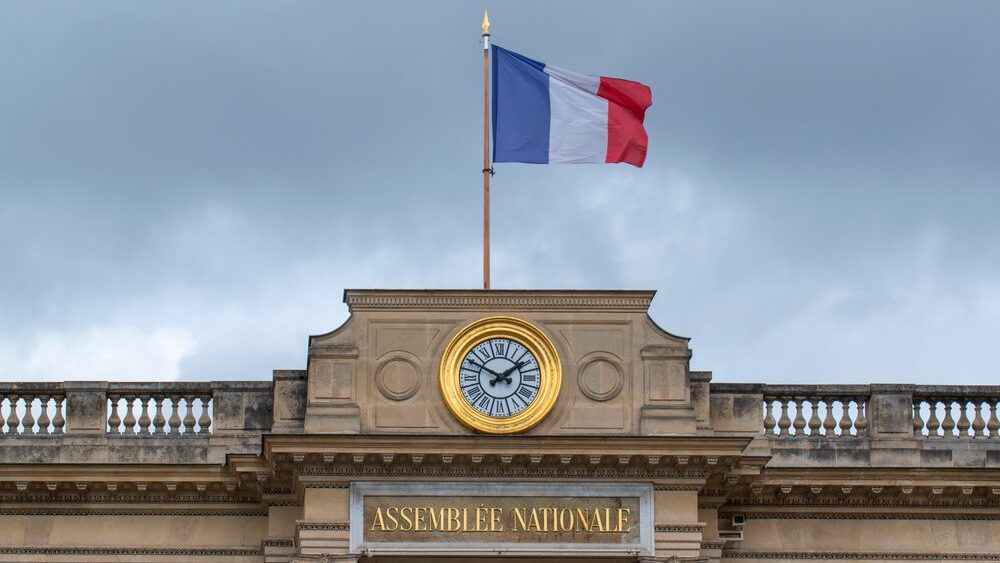
After many weeks of heated debate, France’s immigration reform bill has finally been adopted. The approved version includes the introduction of annual immigration quotas, the end of automatic citizenship for children born to foreign parents, and the extension of the period of legal residence required to qualify for social benefits. However, elements requested by the Right, such as the abolition of State Medical Aid, were not retained.
The new version is a compromise drawn up by a committee of senators and MPs. It is stronger than the previous version, at the request of the Right. But as soon as it is passed, the law’s existence is already in jeopardy as President Emmanuel Macron is already sending signals that he doesn’t accept the outcome of the vote and may find a way to bypass certain aspects of the law.
The government has been working on this reform for many months. It had announced from the start of the legislative process that it did not intend to force the bill through, as it did with the pensions bill, by using Article 49.3 of the Constitution, which allows a law to be passed without a vote. Consensus was therefore essential.
In the first stage of the legislative work, the centre-right Republicans party, which has a majority in the Senate, amended the initial draft to make it stronger. But MPs from Macron’s party then considerably watered it down. The Left, on the other hand, felt that the bill was still too firm. A paradoxical consensus was therefore reached in mid-December between all the opposition parties to reject the bill without examination via a special procedure.
Following that vote, a joint committee of senators and MPs was formed to come up with a new version of the bill likely to secure a majority. The working document proposed by the Senators was essentially adopted, in order to guarantee the vote of the Republicans.
The Rassemblement National, for its part, stated that the latest version of the bill, far from being optimal, at least had the merit of providing some “useful” elements, seen as “loopholes” for the future, and that it could therefore be considered for a vote. By making this choice, Marine Le Pen intended to reinforce her image of responsibility, so as not to allow her party to be seen as one of permanent opposition.
Several institutions have raised their voices in protest against the restrictions set out in the new law. Various universities and higher education establishments are criticising the limits placed on the admission of foreign students.
The bill was adopted despite a rebellion within Macron’s party. According to information from Le Monde newspaper, the health minister warned Prime Minister Élisabeth Borne and Élysée secretary general Alexis Kohler that he would resign if the bill were voted through as it stands—a threat the health minister followed through on by tending his resignation on Wednesday. Five other ministers planned to discuss their position and the possibility of resigning if the bill was adopted. Some Renaissance MPs, belonging to the left wing of the President’s party, also announced that they would refuse to vote for this latest version. The government therefore tried to put pressure on the MPs from its camp so that, as Interior Minister Gérald Darmanin explained, “the text can be voted on without the votes of the RN.”
“There will be no text if there is no majority without Rassemblement National. That’s called honour,” declared Gérald Darmanin before the deputies. In practical terms, this would mean that a precise vote count would be drawn up at the end of the vote. If it emerged that the text had been voted with votes from the RN in order to obtain a majority, the law would not be promulgated. According to Le Monde, the ‘plan’ was suggested to the President by François Bayrou, chairman of the centrist Mouvement Démocrate (MoDem). It would be a real anti-parliamentary power grab.
President Macron explained that he would consider requesting a second deliberation if the law were to be adopted thanks to the votes of the Rassemblement National, as the constitution allows him to do. He also intends to refer the matter to the Constitutional Council to obtain the withdrawal of the provisions of the law that are most open to criticism by opponents of the law in his own ranks. With these statements, the government intends to turn the balance of power to its advantage and refuses to give credence to the idea that it has ‘given in’ to the Right.
The left-wing parties proposed a new motion to reject the bill, but it was not adopted.
The deadlock surrounding this bill is indicative of the sclerosis of the French parliamentary system in the face of the growing importance of the Rassemblement National, which now has 88 MPs in the National Assembly, making it the largest parliamentary opposition group outside the coalition. But it also reveals at a deeper level the resistance of an administrative and political elite powerfully hostile to the idea of regulating immigration.
Late on the night of December 19th, the text was finally adopted by the MPs, by 349 votes to 186. Without the votes of the Rassemblement National, the law would have received only 261. Contrary to Darmanin’s wishes, the law therefore passed “with the votes of the RN.”
Having fought so hard for passage, if Emmanuel Macron is to be believed, the next step would be to gut the law of its substance, either by a second deliberation, by failing to promulgate it, or by the intervention of the Constitutional Council. The big winner in this legislative battle is undoubtedly absurdity.
